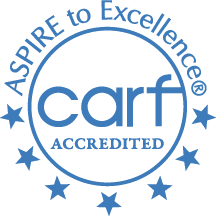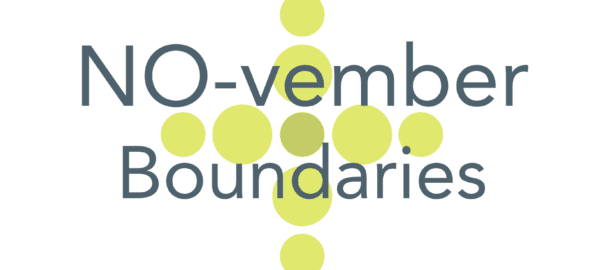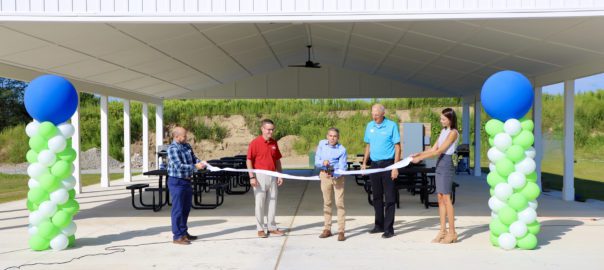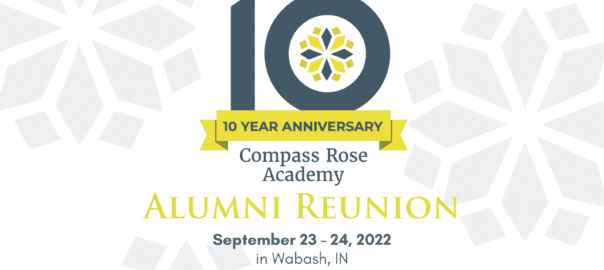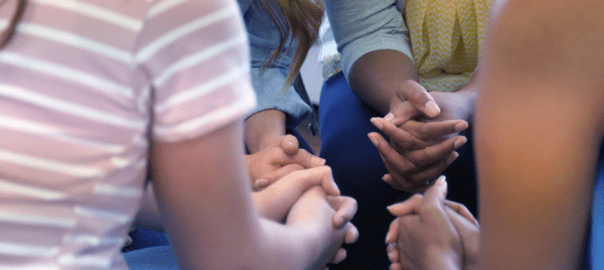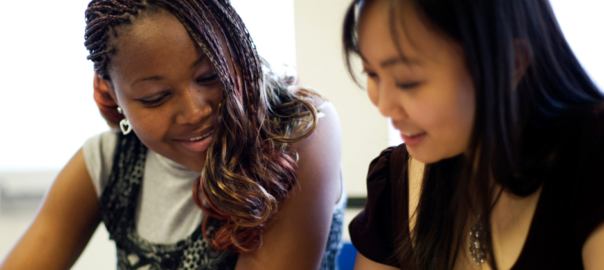Kara Russell and Bailey Lauer are both Family Teachers at Compass Rose Academy (CRA). Keep reading this Q&A to learn more about what their job is like!
What does a typical day look like as a Family Teacher at CRA? What is your schedule?
K: A typical day at CRA begins with waking up the students (I actually wake them up to the same song “Good morning Beauty Queen” just for fun). They are pretty self-sufficient in the morning as they make their own breakfast, clean up their room, and do the chore that they are assigned to do around the house. They will then start getting ready for the day brushing their teeth, putting on makeup, doing their hair, and generally managing their time to ensure that they stay on schedule. During the week, the students go to school around 8:30 a.m. Family Teachers leave the students there and return at 11:00 a.m. to take the students to group therapy and lunch. Family Teachers take turns serving lunch, but after serving, we leave the students with school staff from 12:20 p.m. to 2:50 p.m. While the kids are in school, Family Teachers typically get to return to the home or another place to hang out. Sometimes, Family Teachers might have to do something in the home rather than resting but that is not typically the case. Once the students are picked up from school, they get an afternoon snack and begin their required 1 hour of daily recreation. One of the students is responsible for cooking dinner every night for the rest of the home, and so they begin the cooking process. Staff steps in when necessary to help the students. The students have a bit of free time in which they can do crafts, read a book, play a game, or talk to friends before dinner. We eat a “family style” dinner together and then the girls clean up and touch up their assigned chore. The rest of the evening the students can watch TV and just hang out until they have a required room time from 7:15 p.m. to 8:00 p.m. during which they are to work on their treatment work or take time to themselves. At 8:00 p.m., the girls get their evening snack and continue to hang out. Betimes start at 8:45 p.m. and go all the way until 10:00 p.m. when Family Teachers get off.
B: A typical day at CRA is a busy day, but in a good way. School days, Monday through Thursday, are the most structured days because we have to make sure the students are where they need to be and on time. We do have free time to ourselves during the time that the students are in school, just as long as we have no required meetings to attend. Fridays are typically busy the first half of the day. There are phase meetings where students meet with their treatment team so they can progress in their program. The students and staff also go to Reins and Rainbows, which is an equine therapy program. The second half of Fridays typically have free time where you get to spend time with the students, and can really spend time building relationships. Saturdays are the days where we take the students off-campus for outings. Examples of outings that I have been a part of are: going to the movies, going to various parks, going to a trampoline park, and bowling. Outings are always a lot of fun, and the students look forward to them because they get to be “normal” teenagers. On Sundays, we attend church at New Journey in Wabash. After church, we come back to Compass Rose and have lunch in the home, and then do a super clean of chores and their rooms to make sure that when we start the new week on Monday, everything is in good shape in the home. Sunday afternoons and evenings are once again used as downtime where we get to spend time building relationships.
What do you like best about your job?
K: I personally love that each day is different. I am never bored at work. There is time to really pour into girls and help them through a rough time in their life. I get to be someone’s shoulder to cry on, someone who is there through the thick and thin for these students. No day is the same, there are different issues to deal with everyday as you help teenage girls live together.
B: I like many things about my job so it makes it hard to choose just one thing. I really like the people that I work with. I love working with the students, some days can be a struggle, but there are definitely more better days than there are worse days and that ultimately makes it worth it.
How would you describe your job to someone who has never heard of CRA?
K: I work with teenage girls who have severe mental health and/or behavioral issues in a residential facility. I work 16 hour days which actually is not as terrible as it sounds. It is actually doable because there is time to rest when needed for the most part. Everyday is totally different, and there are different challenges that present themselves every day.
What’s the most challenging part of your job?
K: It is definitely hardest when the students push back and take their bottled-up emotions out on you. It is hard to be told that you are disliked, but the reason they really dislike you is because you are pushing them to be the best version of themselves that they possibly can. They always come around, and you are able to find a good resolution with them. Sometimes, you just have to be their emotional punching bag and take it. My greatest advice for this job is that you cannot take anything they say personally.
B: The most challenging part of being a Family Teacher is when a student is struggling, and you can’t fix the issue or make things better for them.
What motivates you to come to work everyday?
K: My relationship with the students is my main motivation. I get to teach them lessons that I wish someone taught me when I was their age. I get to help in a long-term way and have the joy of being able to watch these girls learn, mature, and grow.
How would you describe the culture of CRA?
K: I love my work environment as a whole and that is primarily due to my coworkers. My coworkers are all so compassionate and genuinely care about one another. I know that if I need anything that I can go to any number of them, even if we are not super close. It is just a group of good people who work stressful jobs together. In the job, there is a lot that staff is put through and those moments are what bring us together most. There is no fear of supervisors, and I feel I can be honest with them and they respect and help me in any way that they can. CRA promotes the importance of community because we really do need one another. There are many opportunities to build community and feel supported. One of my favorite things is what is called “round table” in which staff from all departments are invited to come and talk about real issues, struggles, and joys with others and receive genuine support and advice that you may not have otherwise gotten.
What’s the most rewarding part of your job?
K: Being able to share my faith and have it received has been incredible. Also, being able to watch each student struggle and make mistakes and learn from them. There is nothing like being able to watch the progression of a student’s behavior, relationships, mental health get better and more manageable.
B: The most rewarding part of being a Family Teacher is when the students have breakthroughs in their program. It’s great to see the progress they make and the excitement and pride they have in their successes.
Do you have a favorite moment with a student you would like to share?
K: I recently had a favorite moment with a student in which they asked me about my testimony and I was able to tell it and just tell of the wonders Jesus has worked in my life. It stemmed into a conversation about casting your burden on the Lord, what eternity will look like, why the earth is so hard if God is really there, and surrendering yourself to Him. This student asked great questions and was so attentive. I actually got to serve makeshift communion to her upon her request. She told me the next day that she fully surrendered to God, and she just had an overwhelming feeling of peace and internal happiness that had never been felt before.
I also got to take some girls to an event in which they had over 1,000 prom dresses that they were giving away for free. I got to take my group of girls, and we all tried on dresses together and took one home with us to have for our upcoming prom! It was a very fun and girly day, and it was so rewarding to be able to see my girls glow with happiness, and you could tell they truly felt beautiful.

